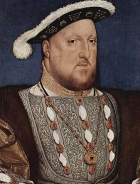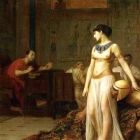Enquiries
A key cornerstone of history is historical enquiry. Quality history provision has historical enquiry at its heart. Through historical enquiry children can be shown how to ask questions, select and evaluate evidence and to make judgments about the past. It can also be a vital way of showing them that there is often more than one side to a story and that history is multi-perspective. Historical enquiry is all about asking questions or hypothesising about the past that we hope the evidence will help us to answer, but getting the enquiry question right is not always easy. In this section you will find resources and guidance that will help you to plan challenging enquiries for your children that will help them to develop as historians.
-

Using the back cover image: Mummified cat
ArticleClick to view -

Using the back cover image: Sandbach Crosses - an Anglo-Saxon market cross
ArticleClick to view -

Viking and Anglo-Saxon struggle for the kingdom of England
ArticleClick to view -

What confuses primary children in history...
ArticleClick to view -

What do we mean by Big Picture History?
ArticleClick to view -

What made Cleopatra so special?
ArticleClick to view -

William Brookes and the Olympic Games
ArticleClick to view -

Women in parliament since 1918
ArticleClick to view

